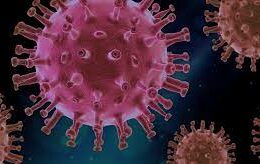Researchers in France recently detected a new Covid-19 variant, named IHU, which reportedly contains 46 mutations – more than any other coronavirus strain discovered since the virus outbreak.
The discovery came at a time when the world was still battling Omicron, which was detected in South Africa in November last year.
Officially code-named B.1.640.2, the new variant was detected by the Marseille University Hospital Institute, IHU, is believed to be more contagious than Omicron, which has been the most infectious Covid-19 variant ever detected.
Below is what is known so far about IHU:
Origins of IHU
· The variant, officially known as B.1.640.2, was first identified in France in November 2021 in a person who had recently returned from a trip to Cameroon.
· Investigations however have been unable to show any more links with Cameroon, and it is not believed the variant emerged there.
What are the symptoms of the IHU variant?
· A study into the variant, which is yet to be peer-reviewed, revealed that the first identified case only developed ‘mild’ respiratory symptoms.
Preliminary findings on the variant
· Initial findings suggest that the strain has a total of 46 mutations, which are more than the 37 that were found on the Omicron variant.
What are the threats posed by the IHU variant?
· Researchers say it is too early to speculate on how harmful the mutant strain is based on the 12 cases identified so far, the Evening Standard reports.
· It is not yet a variant of concern identified by the World Health Organisation (WHO) and initial findings suggest it is unlikely that it will be.
· In addition, IHU predates the Omicron variant, which is now the dominant variant across the world.
· According to Tom Peacock, a virologist at Imperial College, “This virus has had a decent chance to cause trouble but never really materialised.”
· On the other hand American epidemiologist Eric Feigl-Ding had said: “There are scores of new variants discovered all the time, but it does not necessarily mean they will be more dangerous.”








